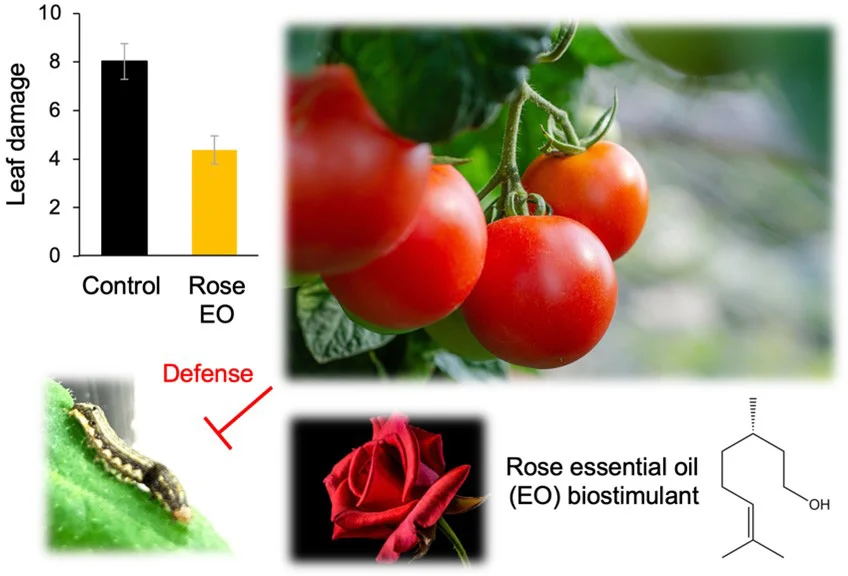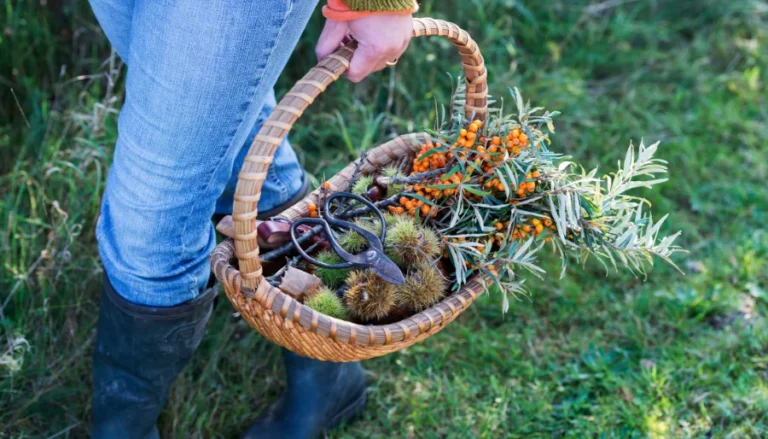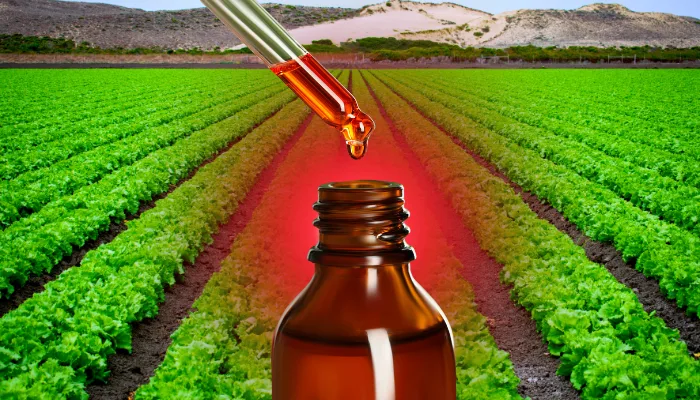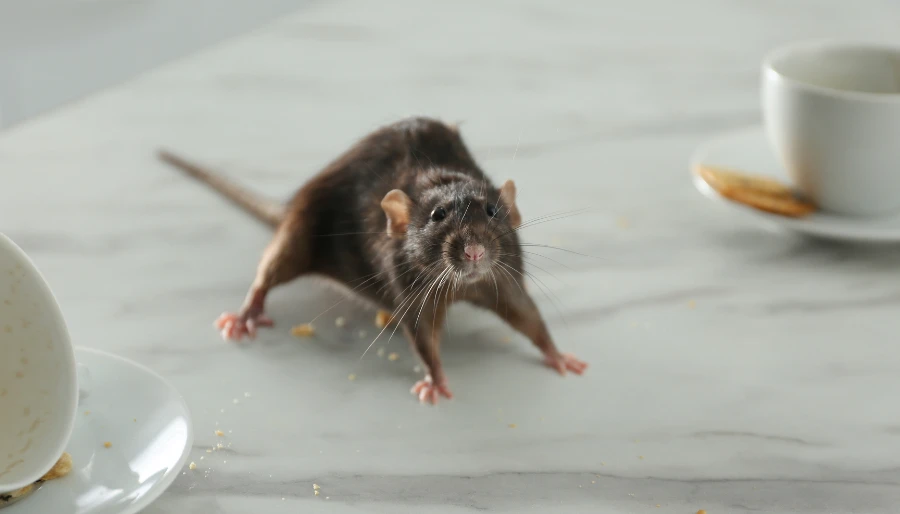Chemists discovered that rose essential oil stimulates defense genes in tomatoes and attracts predators that eat the herbivores devouring the plants.
Forget harsh chemicals – scientists have found a surprising new weapon against crop-destroying pests: rose essential oil (REO)! It doesn’t just chase bugs away; it turns tomato plants into their own mini-fortresses while calling in backup from helpful predators. This double-action superpower could be a major advancement for organic farming.
How Does It Work?
Those beautiful rose scents aren’t just for us. Plants use essential oils (EOs) in all sorts of ways – from attracting pollinators to defending themselves. EOs are safe for humans (think detergents and cosmetics), and even have health benefits! Interestingly, they can sometimes repel insects, too.
The real magic is in something called terpenoids. These natural chemicals inside EOs can actually flip on defense genes in plants. It’s like those tomato plants are “eavesdropping” on a chemical alert from nearby roses, beefing up their defenses before pests even take a bite.
The Problem with Pesticides
While chemical pesticides are still widely used, they come at a steep price. They harm ecosystems, and with the world needing to grow more food than ever, we desperately need safer solutions. That’s the driving force behind research into “plant defense potentiators” – natural substances that boost a plant’s own resistance to pests.
Essential oils are the perfect candidates. They’re environmentally friendly AND already widely used in products, making them affordable to source. But the challenge is in the details: we need to find the specific EOs that work best, and understand exactly how they trigger that defense boost in plants.
A Solution from the Tokyo University of Science
Professor Gen-ichiro Arimura’s team is on the case! “We aimed to investigate the effects of these EOs on plants’ insect pest resistance,” he explains. They knew that the fragrances in EOs contain special compounds that plants might react to, but wanted to see which ones work the best. For this study, they chose 11 essential oils and focused on the tomato plant, a major crop. Their findings, published in the Journal of Agricultural and Food Chemistry, are an exciting step forward.

Rose Oil: More Than Just a Pretty Scent
Roses aren’t just beloved for their beauty. Did you know they have a long history of medicinal and practical uses? Ancient civilizations used rose oil as perfume, in healing balms, and even to flavor food! Now, cutting-edge science is showing its potential for agriculture, too.
How REO Boosts Tomato Defenses
The Tokyo University of Science team went deep, analyzing how 11 different essential oils affected tomato plants at the gene level. Rose essential oil (REO) stood out, increasing the activity of genes called PIR1 and PIN2 – these are crucial for the plant’s natural defense system! Even better, REO-treated tomatoes showed less damage from pests like moth larvae and mites.
The Power of REO Hits the Field
Lab results are great, but what about real-world farming? The researchers weren’t done yet! In a field experiment, REO cut down pest damage on tomato plants by a whopping 45.5% compared to those without treatment. The team believes REO could be a game-changer, especially in winter and spring when pests are less of a problem. In the summer, it could even help farmers cut back on harsh chemical pesticides by nearly half.
Double Duty: Rose Oil as Both Shield and Signal
The secret to REO’s power, says Professor Arimura, lies in something called β-citronellol. This natural compound is an insect repellent, which helps explain why pests gave REO-treated tomatoes a wide berth. But it gets even better: at low concentrations, instead of repelling the spider mite predator P. persimilis, REO attracted it! This means rose oil isn’t just chasing pests away, it’s calling in friendly reinforcements.
More To Discover
- Seoul Government Uncovers High Levels of Toxic Chemicals in Shein Products
- Blue Ridge Beef Expands Pet Food Recall in 16 States Over Salmonella and Listeria Risks
- Lab-Grown Oil: The Next Frontier in Sustainable Food Production?
- Key Challenges at COP28: From Carbon Market Integrity to Methane Emissions and even Innovative Financing
A Win for Safe, Sustainable Farming
This research isn’t just about lab results. It points to a whole new toolkit for organic farmers. REO activates a plant’s own defenses deep down at the gene level. Best of all, it’s completely safe – no toxic residues, no damage to the plants themselves.























